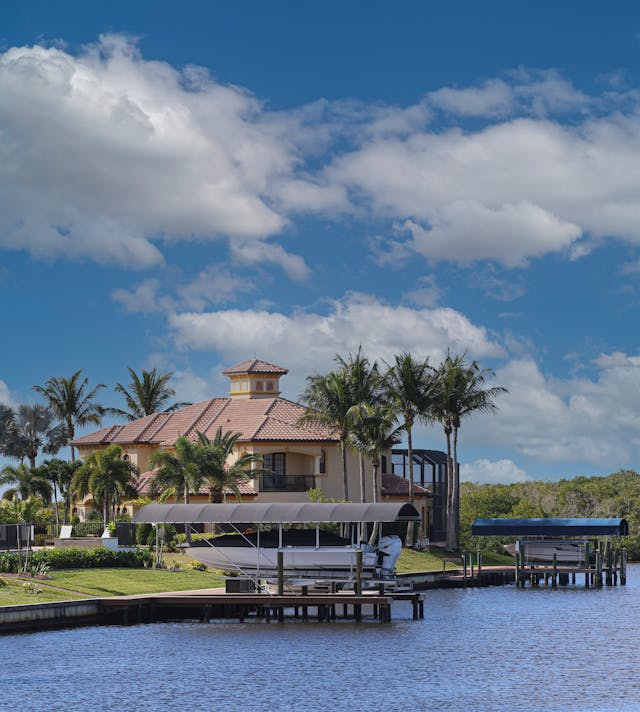7 Step Guide to Cape Coral Rental Regulations
1. City Overview: Short-Term Rental Landscape
Homes in Cape Coral have depreciated by -5.89%, with the median home value at $376,707, according to Zillow. The average property tax is 0.95%, which remains manageable for short-term rental (STR) investors seeking favorable regulations and strong earning potential.
Cape Coral currently hosts 3,558 active short-term rentals. The average daily rate for these rentals is $263, translating to an annual revenue of $40,677 as of March 2025. The average gross yield for STRs is 10.85%, highlighting promising investment returns. The unemployment rate is a low 3.8%, well below the national average of 4.1%.
The most popular property types are 2-bedroom units, with an average daily rate of $263 and an impressive annual revenue of $69,861. Guests favor amenities like Elevators, Babysitter recommendations, and Beachfront locations, showcasing the demand for convenience and coastal experiences.
Cape Coral attracts visitors from nearby cities such as Miami (4.51% of guests), Cape Coral itself (1.49%), and Orlando (1.46%). Leading short-term rental hosts include Roelens, Vesteva Vacation Rentals, and Vacasa Florida, boasting average ratings of 4.70, 4.82, and 4.60, respectively.
With an average booking lead time of 69.5 days and investor-friendly STR regulations, Cape Coral remains a compelling market for short-term rental opportunities.

2. Quick Facts
- Chalet Cape Coral Investor Potential & Regulation Score: Friendly.
- Permit Required? Yes, a one-time registration fee of $35 applies for an individual dwelling unit.
- Zoning Restrictions? Yes, STRs must adhere to zoning regulations specific to residential areas.
- Maximum Occupancy: No more than two people per room, depending on room size and compliance with the International Property Maintenance Code.
- Tax Requirements: Airbnb collects a 5% Lee County Tourist Development Tax and applicable state taxes, including a 6% Transient Rental Tax and a 0.5% Discretionary Sales Surtax. Hosts must ensure compliance with additional tax obligations.
- Renewal Frequency: One-time registration with updates required within 30 days of ownership or contact changes.
- Insurance Required? Liability insurance with minimum limits of $1 million per occurrence and $2 million aggregate is strongly recommended.
- Enforcement Level: Strict, enforced by the Department of Community Development and Code Compliance Division.





